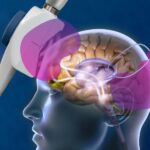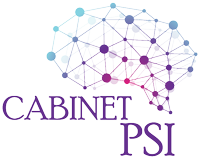
Transcranial Magnetic Stimulation (TMS): A Promising Treatment for Reducing Suicidal Thoughts
12 November 2024
Caffeine: a surprising ally in combating the effects of alcohol
3 December 2024In recent years, the term neurodivergent has gained more and more attention, shedding light on the diverse ways in which the human brain works. But what does it mean to be neurodivergent and how does this influence everyday life?
What is Neurodivergence?
Neurodivergence refers to people whose cognitive processes differ from what is considered typical or “neurotypical”. This concept includes a diverse range of conditions, recognizing the uniqueness of each way of thinking. Unlike clinical classifications, neurodivergence does not put labels of “normal” or “abnormal,” but emphasizes human diversity in thinking and behavior.
While neurodivergent individuals may face distinct challenges, they also possess tremendous abilities that contribute to enriching communities and workplaces.
Neurodiversity spectrum
Neurodiversity covers multiple conditions, including:
- Autism Spectrum Disorder (ASD): Includes diverse experiences, from non-verbal autism to people previously diagnosed with Asperger’s syndrome.
- Attention deficit hyperactivity disorder (ADHD): Characterized by inattention, impulsivity, and hyperactivity. People with ADHD focus intensely on activities that pique their interest.
- Learning difficulties: Dyslexia (reading difficulties), dyscalculia (problems with math), and dyspraxia (poor coordination) affect various aspects of life.
- Mental health disorders: Conditions such as bipolar disorder and obsessive-compulsive disorder can have neurodivergent traits.
- Other conditions: Tourette syndrome, sensory processing disorders, or Prader-Willi syndrome are included in this category.
Strengths and Challenges
Neurodivergent individuals navigate a world often adapted for neurotypicals, encountering challenges but also standing out for their strengths:
- Someone with autism may have exceptional attention to detail, being excellent at research or accounting, but may find social situations overwhelming.
- People with ADHD often have great creativity and the ability to solve problems quickly, but they may have difficulty staying organized.
- Sensory sensitivities can make certain work environments stressful, but with adjustments such as using headphones for noise reduction or quiet spaces, these individuals can excel.
How can we create inclusive spaces?
To embrace neurodiversity, it is essential to develop environments that accommodate diverse needs. Some approaches:
- Awareness and Education: Promoting dialogue about neurodiversity helps to reduce stigma and create a climate of understanding.
- Flexible Practices: Adjusting working methods, such as alternate interviews or quiet spaces, helps neurodivergent people reach their full potential.
- Leveraging Strengths: Recognizing unique talent can generate innovative solutions and a positive impact on communities.
Neurodiversity is a spectrum that reflects the beauty of human diversity. Embracing and supporting neurodivergent individuals means appreciating their unique contributions and building a more inclusive society.
For more information or personalized support in understanding neurodiversity, contact Cabinet Psi! Our psychologists and psychiatrists are here to guide you in discovering your strengths and developing strategies that promote a balanced and fulfilling lifestyle. Together we can create a more empathetic and inclusive environment!


